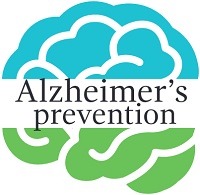“Pancreatic cancer is one of the most deadly cancers and is the fourth leading cause of cancer death in the U.S. (causing over 32,000 deaths yearly). The 5-year survival rate for pancreatic cancer is only 5%. Because of the high rate and low survivability, primary prevention is an extremely important strategy for combating pancreatic cancer. A new study in Sweden has identified a high sugar intake as a strong predictor of pancreatic cancer. Researchers studied 77,797 healthy men and women (without diabetes or a history of cancer), aged 45+, for more than 7 years. They looked at the amount of sugar these adults consumed (i.e., high intake versus low intake) and identified 3 major sugar sources that were strong predicators of pancreatic cancer.
People who ate a high intake of added sugar (i.e., added to coffee, tea, cereal, etc.) were 69% more likely to get pancreatic cancer than those who ate a low intake.
People drinking the most soft drinks (i.e., 2+/day) were 93% more likely to get pancreatic cancer than those with a low intake of soft drinks.
A high intake of sugar-sweetened fruit increased pancreatic cancer risk by 51%.
The researchers point out that frequently eating foods high in sugar contributes to high blood sugar levels, higher insulin levels, and increased body weight, all of which tend to increase the risk of cancer. “The bottom line: If you want to reduce your cancer risk, take it easy on added sugars, sugar sweetened soft drinks, and other sources of sugar including a high intake of sugar-sweetened fruits. Learn to enjoy fruit fresh, vegetables, whole grains, low-sugar yogurt, and low-sugar dairy foods or soymilk. Look for foods high in dietary fiber, unrefined, and have a low-glycemic index.”
God, in love, instructed His people through the Spirit of Prophecy, “The free use of sugar in any form tends to clog the system, and is not infrequently a cause of disease.” (HL 62) “Large quantities of milk and sugar eaten together are injurious. They impart impurities to the system. Animals from which milk is obtained are not always healthy. Could we know that animals were in perfect health, I would recommend that people eat flesh-meats sooner than large quantities of milk and sugar. It would not do the injury that milk and sugar do.” (CTBH 158)



